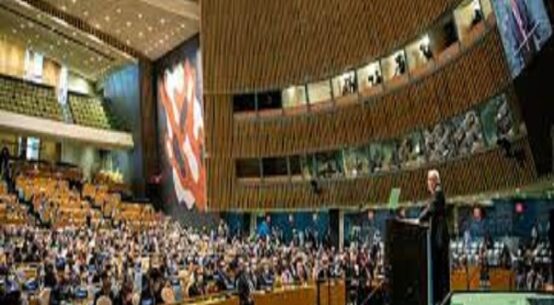
The interim government of Bangladesh came to power with promises of substantial reforms across various state sectors. However, three months have passed, and there seems to be little progress or visible action in these reforms, leaving citizens concerned but hopeful.
The first 100 days of Bangladesh’s interim government have unfolded as a period of mixed outcomes, leaving many to question whether this administration is truly up to the task of addressing the nation’s pressing challenges. Despite early achievements, significant failures and inconsistencies in governance have begun to overshadow the initial optimism.
The government took some steps which the public sees as positive, but broader reform efforts seem stagnant. The lack of progress raises pressing questions that the government can no longer ignore. Especially, the recruitment of someone like Mostofa Sarwar Farooki, Sheikh Bashir Uddin as advisors created nationwide criticism.
Hence, it’s true that the interim government inherited an administration marred by widespread corruption, looting, and excessive politicization across all constitutional institutions under the previous government. This has created deep-rooted obstacles, making it challenging to bring efficiency back to these systems. Although the government has only been in power for three months following the mass student-led uprising, various setbacks—like recent unseasonal floods—have added to its challenges, significantly affecting initiatives that should have addressed pressing economic issues like inflation. Furthermore, instability in the garment sector and disruptions in the hill areas further complicated their task so far.
Yet, people are eager to see whether any of the promised reforms are underway or even initiated. Although many of the issues are complex and longstanding, requiring time to resolve, the public expects visible steps toward positive change. The government has established six reform commissions, whose heads officially began their work on October 1. However, law enforcement and administrative bodies still lack order, and the cost of essential goods continues to rise, indicating that key issues remain unaddressed.
However, the interim government has made some achievements already. There’s nothing to deny these. Let’s revisit the visible achievements of the government.
One of the government’s early successes has been its drive for administrative efficiency. By addressing long-standing bureaucratic delays, sectors like health and education have seen modest improvements. Besides, efforts to stabilize the economic and banking sectors are notable. The efforts are effective indeed. Moreover, the launch of an anti-corruption initiative targeting irregularities in development funds has also won praise, although it remains to be seen whether these efforts are sustainable.
Disaster preparedness has been another positive, with the administration taking timely measures to enhance flood response mechanisms, minimizing losses during recent floods. Additionally, reopening stalled negotiations on bilateral agreements has shown diplomatic promise.
Besides, forming commissions to reform the specific sectors is another positive thing. The commission heads are working independently and expectedly they will reveal their suggestions soon then it’ll be possible to evaluate. But hope for the best. Still the people are expecting that the commissions will bring something new which will pacify the legacy of the interim government. So let’s leave it to the hand of time to judge either those would be accepted or not by the commoners.
Despite some positive steps the government is cursed with so many controversial decisions which raised ample criticisms too. So let’s discuss some criticisms and failures of the government.
The administration’s shortcomings are glaring. The government’s inability to reduce political unrest has been its most significant failure. Protests and violence continue to escalate, painting a bleak picture of political polarization. The interim leadership’s lack of decisive action to mediate between rival factions undermines the credibility of its mandate to create a fair electoral environment.
Economic mismanagement further erodes public confidence. While inflation was a pre-existing issue, the government’s inconsistent policies have exacerbated the crisis. The lack of concrete steps to ease the burden on low-income families has drawn widespread criticism, as has their inability to stabilize the import-export market. The govt very harshly failed to normalize the price hike. Still the essentials prices are higher and not in the reach of the people. The government is earning curse and losing public trust for this.
The promise of public safety reform has also fallen flat. Law enforcement agencies, instead of acting impartially, have been accused of overreach during protests, raising concerns about human rights violations. The absence of transparent accountability mechanisms deepens skepticism about the government’s commitment to justice and fairness.
As critics argue that the interim government has been too reactive rather than proactive. Their piecemeal approach to policy-making and failure to communicate a clear vision for the future have left the public disillusioned. Despite its caretaker nature, this administration seems unprepared for the political complexity of the situation it was meant to stabilize.
Some even accuse the government of favoring certain political factions, undermining its supposed neutrality. These perceptions, whether true or not, tarnish its ability to act as a credible steward of democracy. Even no clear and visible actions on the exuberance of extortionists, religions dogmatics, mob justices, increase of murders, stealing, robbery etc creates enormous criticism to the govt.
Critics also argue that the slow progress in reforms, especially those affecting inflation and law and order, shows the government is focusing on less critical matters rather than prioritizing urgent issues. In response, government advisors argue that handling these challenges requires thoughtful prioritization rather than labeling their actions as “slow.” Experts recommend that the government organize its reform agenda, focusing first on the most urgent areas, to avoid further delays. Citizens, meanwhile, are seeking clarity on the scope and timeline of these reforms, particularly as they look to the July uprising’s call for justice and change.
However, restructuring the country in its current state is undeniably challenging, but if the state fails this time that would definitely be catastrophic. Citizens expect tangible progress that honors the sacrifices of the students and citizens who demanded change. A safe, humane, and democratic society is the aspiration of every Bangladeshi, and realizing this vision will be challenging. But if the Chief Advisor and his team, in collaboration with political leaders, make sincere efforts, the country has a genuine chance at substantial improvement.
The interim government’s role should be to rebuild Bangladesh in a way that allows citizens to experience genuine democracy. The expectation is for this government to identify and address areas corrupted under previous regimes, ensure vigilance to prevent further corruption, and focus on a cleaner, more efficient governance structure. Citizens also anticipate a fair national election following these reforms, framed within a robust policy structure. In handling the complex pressures at hand, the government must be strategic to fulfill citizens’ expectations and set a faster pace for the reforms essential to the nation’s future.
Finally, as the public opinion reflects growing frustration. Many citizens feel that the interim government’s priorities are misplaced and that its approach lacks urgency. While pockets of progress exist, the broader picture remains one of discontent and uncertainty.
To salvage its standing, the interim government must immediately address political tensions, stabilize the economy, and ensure transparency in all actions leading up to the elections. Failing to do so risks eroding whatever trust remains. In these first 100 days, the interim government has walked a tightrope between hope and skepticism. With time running out, the nation awaits decisive leadership, not more missed promises.
Sumon Reza is a poet, columnist and journalist, currently working with The News Times as Sub Editor. He can be reached by e-mail at: shumonreza5@gmail.com


